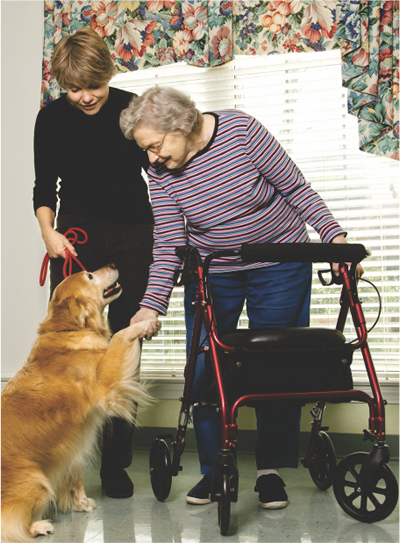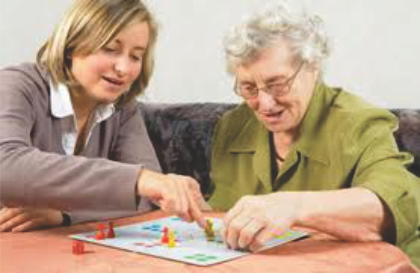

 |
|||
 |
|||
 |



Senior Living Options
Whether you are searching for an active senior lifestyle with social opportunities with people of like age, or needing 24-hour care, Next Steps Senior Living Advisors has the resources necessary to make the right decisions.
- Senior Apartments
These apartments are generally exclusive to seniors of a minimum age. Usually they require that at least one occupant of an apartment be at least 55. They offer group amenities such as club houses, recreation and planned socials. Residents are active, mobile (walkers etc. are usually fine) and interested in peer group interaction and socializing. Residents are responsible for their own shopping, cleaning, transportation, meals and healthcare. Cost of utilities, except phone and cable, are typically included. These apartments are not licensed by the state.
- Retirement/Independent Living Communities
These communities offer individual apartments ranging in size with one or two bedrooms and their own kitchens. Included in the monthly rent are one or two meals in a dining room per day; weekly or bi-weekly housekeeping, transportation to scheduled physician appointments, shopping trips and social outings; emergency response systems and social opportunities. Cost of utilities, except phone and cable, are included. Some independent living
communities also have an assisted living license and can offer assisted care as an additional service and charge without the resident moving to another apartment or building on the campus. Communities without assisted care are not licensed by the state. Those that offer assisted care are licensed.
- Assisted Living Centers
These communities offer individual apartments ranging in size from shared accommodations, studios, as well as one and two bedrooms. They generally have kitchenettes, as three meals a day are provided in a dining room. Also included in the monthly rent are weekly housekeeping, transportation to scheduled physician appointments, shopping trips and social outings; emergency response systems and activities. Cost of utilities, except phone, are included. Assisted Living Communities offer 24-hour care with nurses on staff and caregivers around the clock. Residents are assessed by the nurse before moving in and are provided a care plan. Communities charge for additional care based on a points or time based system or on a level of care. This setting is appropriate for someone needing personal care assistance, but has good safety awareness and can be left alone in an apartment for a period of time. They also offer social interaction with a calendar of activities the residents can choose to participate in. These communities are licensed by the state.
- Continuing Care Retirement Communities (CCRC)
These communities offer a “continuum of care” within the same campus. They will provide Independent Living, Assisted Living, Skilled Nursing services and many times Alzheimer’s/Dementia Care. Residents move through the continuum care, as needed, to the various buildings or areas of the campus. The Assisted Living, Alzheimer’s/Dementia Care and Skilled Nursing areas are licensed by the State.
- Adult Care/Assisted Living Homes
This type of setting is usually a single-family home, in a quiet neighborhood with 5-10 residents. Caregivers are on duty 24-hours to provide a close, supportive environment that approximates family style living and includes personal care assistance, as well as three meals and snacks, laundry and all utilities. Accommodations can be shared or private, sometimes private bathrooms are an option as well. These homes can accept residents with dementia or Alzheimer’s and provide a high level of care for residents that are frail or lacking good safety awareness. These homes are licensed by the State.
- Alzheimer’s/Dementia Care
These communities can be stand-alone or a special wing or floor of a larger assisted living community. They have secured and alarmed exits to prevent wandering. They provide nurses on staff and 24-hour caregivers, and offer special programming designed for the special needs of Alzheimer’s and other related memory disorders. Daily activities and social interaction keep residents engaged. Three meals and snacks, laundry and all utilities are included. These communities are licensed by the State.
- Respite Care
Respite Care can be offered in both Assisted Living Communities and Adult Care Homes. This is a short-term or temporary stay, days or weeks, to provide relief or respite to the regular caregiver, usually a family member. A family member may be hesitant to seek or use respite care to leave a loved one in the care of another. However, there is evidence that there are healthy benefits for caregivers who take a break from the associated stresses of caring for a loved one.
- Skilled Nursing
Skilled Nursing Facilities, sometimes called Rehabilitation Hospitals, provide medical and rehabilitation services that do not require actual hospitalization. Stays are generally short term and services include physical, occupational and speech therapies and medical attention after surgery or illness. Most also provide a long term living unit if needed. These facilities are licensed.
- In-Home Care
This type of care is a service provided in the patient's place of residence for the purpose of promoting, maintaining, or restoring health or minimizing the effects of illness and disability. Services may include such elements as basic homemaking services and transportation to personal care including dressing, bathing, grooming medication assistance and toileting. Care may be provided by a registered nurse, licensed practical nurse, or home health
aide. These services are generally charged out by the hour with a minimum number of hours for each visit.
Next Steps Senior Living Advisors can also make referrals for other resources
as well:
- Realtors
- Elder Care Attorneys
- Movers
- Case Managers
- Financial Aid
- And more
Copyright @2013 - Next Steps Senior Living Advisors
Site designed & hosted by 800biz Ninja Marketing
Site designed & hosted by 800biz Ninja Marketing